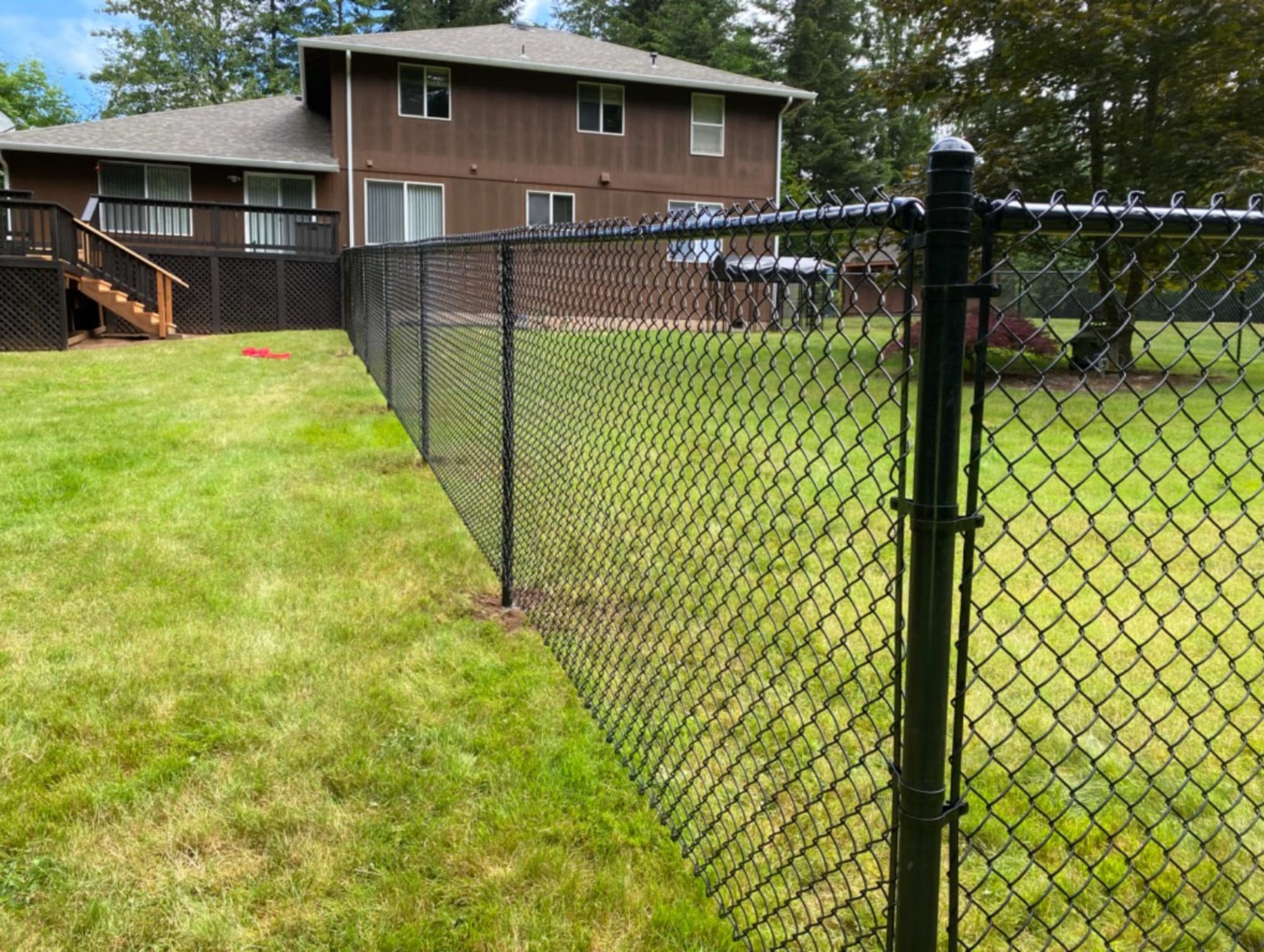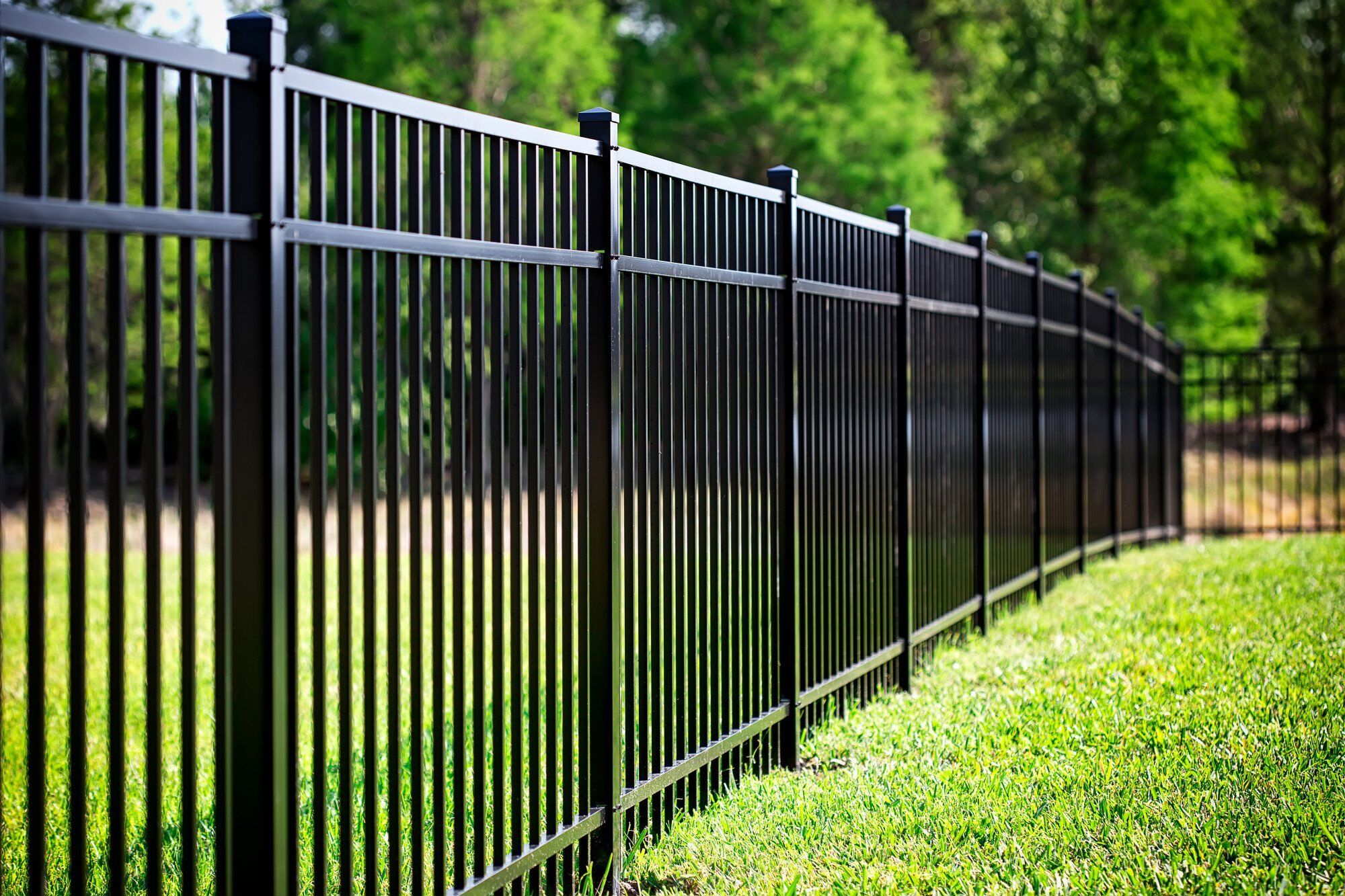All Categories
Featured
Choosing the excellent fencing product for your home can be a complicated task with the range of alternatives available. Whether you're aiming to increase safety, enhance privacy, or enhance the aesthetic allure of your home or company, the right fencing can serve numerous functions. In this guide, we'll explore different fencing materials, their advantages, and which choices might be finest suited for various needs.
Benefits:
All-natural Appearance and Feeling: Wood uses a warm, all-natural aesthetic that enhances gardens, yards, and other exterior rooms. Customizable: You can repaint or stain timber fence any type of color, allowing for unlimited style possibilities. Personal privacy and Security: When built as a solid panel, a wood fence can offer superb privacy and protection. Drawbacks:
Maintenance Required: Wood fences need periodic maintenance to protect against rot, bending, and damages from bugs like termites. Prone to Weather Condition: Direct exposure to rainfall, snow, and sunlight can break down the quality of the wood over time, which indicates you might need to reseal or replace boards. Best For: Homeowners searching for a traditional, customizable fencing with a natural look.
Benefits:
Long Lasting and Resilient: Vinyl is unsusceptible to the weathering that wood fences experience, and it will not warp, fracture, or discolor. Reduced Upkeep: Unlike wood, plastic does not call for discoloration or sealing. Cleaning it is as basic as washing it with water. Selection of Styles: Vinyl fence is readily available in lots of styles and shades, and some versions even simulate the look of wood. Drawbacks:
Greater First Price: Vinyl fencings can be much more pricey to install contrasted to other products, such as timber or chain link. Prone to Fracturing: While resilient, plastic can end up being fragile and crack in really cool temperatures or when struck with force. Minimal Personalization: Unlike timber, vinyl can't be easily changed, so your design options are extra minimal. Best For: House owners who prioritize reduced maintenance and lasting durability, and who want to buy a higher initial cost.
Advantages:
Affordable: Among the most budget-friendly secure fencing choices, making it excellent for huge residential or commercial properties or areas calling for comprehensive coverage. Reduced Maintenance: Wire mesh fence need little to no upkeep past periodic cleaning and repairs. Resilient and Secure: While not aesthetically enticing, chain web link fencings are solid, difficult to climb up, and give a high degree of security. Drawbacks:
![]()
Absence of Privacy: A chain web link fence does not offer much privacy unless you add slats or various other modifications. Industrial Look: The cable mesh might not match all residential or commercial property types, particularly residential homes or areas calling for an aesthetic touch. Best For: Huge residential or commercial properties or locations where spending plan is a top priority, or for those that require a solid, safe boundary without the requirement for personal privacy.
Benefits:
Solid and Secure: Steel fences provide superb safety, as they are challenging to climb up and offer a robust barrier against trespassers. Long Life expectancy: Steel fences can last for years, particularly when treated for rust and deterioration resistance. Elegant Aesthetic: Wrought iron and steel fencings add an elegant, classic seek to homes, yards, or business buildings. Drawbacks:
Costly: Metal fences, especially wrought iron, tend to have a higher ahead of time price than other products. Maintenance Demands: Steel and functioned iron fences may rust with time if not effectively maintained, calling for regular painting or therapy. Restricted Privacy: Steel fences are usually open, so they do not supply the privacy that strong fencings like wood or vinyl can give unless combined with various other products. Best For: Those seeking a high-security, ornamental alternative with a long life-span, particularly for high-traffic or upscale locations.
Advantages:
![]()
Low Upkeep: Compound secure fencing needs no paint, discoloration, or sealing. It's simple to tidy with just soap and water. Durability: Resistant to rot, insects, and weather, composite fences last much longer than standard timber. Eco-Friendly: Numerous composite materials are made from recycled wood and plastic, minimizing ecological effect. Negative Aspects:
Pricey: The preliminary cost of composite secure fencing can be greater than wood or vinyl. Restricted Customization: While available in numerous colors, composite fencings do not supply as many layout choices as wood. Heavy: Compound products are frequently much heavier than other kinds of fencing, which can make installment much more tough. Best For: Those who desire a low-maintenance, eco-friendly alternative that incorporates the look of timber with raised toughness.
Verdict. Choosing the right fence product for your building depends on a selection of variables, including your spending plan, visual choices, privacy requirements, and upkeep desire. Whether you select the ageless charm of timber, the low-maintenance advantages of plastic, the stamina of steel, or the green durability of composite, picking the finest fencing needs careful consideration of your building's one-of-a-kind needs. By understanding the advantages and restrictions of each product, you can make an informed decision that provides lasting worth and satisfaction for your residential or commercial property.
- Timber Fence. Wood fence is a traditional selection for numerous house owners because of its natural charm, flexibility, and ability to blend flawlessly with different building styles. Offered in a variety of designs, including picket, personal privacy, and ranch rails, wood can be tailored with paint or stain to match your desired visual.
Benefits:
All-natural Appearance and Feeling: Wood uses a warm, all-natural aesthetic that enhances gardens, yards, and other exterior rooms. Customizable: You can repaint or stain timber fence any type of color, allowing for unlimited style possibilities. Personal privacy and Security: When built as a solid panel, a wood fence can offer superb privacy and protection. Drawbacks:
Maintenance Required: Wood fences need periodic maintenance to protect against rot, bending, and damages from bugs like termites. Prone to Weather Condition: Direct exposure to rainfall, snow, and sunlight can break down the quality of the wood over time, which indicates you might need to reseal or replace boards. Best For: Homeowners searching for a traditional, customizable fencing with a natural look.
- Vinyl (PVC) Secure Fencing. Plastic fences have expanded in popularity as a result of their reduced upkeep and resilience. Made from artificial plastic materials, plastic fences are immune to rot, fading, and insects, offering a clean, modern-day appearance with little upkeep.
Benefits:
Long Lasting and Resilient: Vinyl is unsusceptible to the weathering that wood fences experience, and it will not warp, fracture, or discolor. Reduced Upkeep: Unlike wood, plastic does not call for discoloration or sealing. Cleaning it is as basic as washing it with water. Selection of Styles: Vinyl fence is readily available in lots of styles and shades, and some versions even simulate the look of wood. Drawbacks:
Greater First Price: Vinyl fencings can be much more pricey to install contrasted to other products, such as timber or chain link. Prone to Fracturing: While resilient, plastic can end up being fragile and crack in really cool temperatures or when struck with force. Minimal Personalization: Unlike timber, vinyl can't be easily changed, so your design options are extra minimal. Best For: House owners who prioritize reduced maintenance and lasting durability, and who want to buy a higher initial cost.
- Chain Web Link Fence. Chain link fencings are an affordable alternative for those seeking safety without the high cost. Normally used in business buildings, parks, and big household areas, wire mesh fence supply an effective limit and are offered in a selection of heights.
Advantages:
Affordable: Among the most budget-friendly secure fencing choices, making it excellent for huge residential or commercial properties or areas calling for comprehensive coverage. Reduced Maintenance: Wire mesh fence need little to no upkeep past periodic cleaning and repairs. Resilient and Secure: While not aesthetically enticing, chain web link fencings are solid, difficult to climb up, and give a high degree of security. Drawbacks:

Absence of Privacy: A chain web link fence does not offer much privacy unless you add slats or various other modifications. Industrial Look: The cable mesh might not match all residential or commercial property types, particularly residential homes or areas calling for an aesthetic touch. Best For: Huge residential or commercial properties or locations where spending plan is a top priority, or for those that require a solid, safe boundary without the requirement for personal privacy.
- Steel Fence (Light Weight Aluminum, Steel, Wrought Iron) Steel fences, such as aluminum, steel, and wrought iron, are favored for their safety and security, stamina, and longevity. These materials are commonly made use of in high-security business residential properties, upscale property areas, and those looking for an advanced, ornamental look.
Benefits:
Solid and Secure: Steel fences provide superb safety, as they are challenging to climb up and offer a robust barrier against trespassers. Long Life expectancy: Steel fences can last for years, particularly when treated for rust and deterioration resistance. Elegant Aesthetic: Wrought iron and steel fencings add an elegant, classic seek to homes, yards, or business buildings. Drawbacks:
Costly: Metal fences, especially wrought iron, tend to have a higher ahead of time price than other products. Maintenance Demands: Steel and functioned iron fences may rust with time if not effectively maintained, calling for regular painting or therapy. Restricted Privacy: Steel fences are usually open, so they do not supply the privacy that strong fencings like wood or vinyl can give unless combined with various other products. Best For: Those seeking a high-security, ornamental alternative with a long life-span, particularly for high-traffic or upscale locations.
- Composite Fencing. Compound fencing combines wood fibers and plastic to produce a product that imitates the look of timber yet is much more durable and less complicated to maintain. It's an environmentally friendly option made from recycled products, making it both sustainable and practical.
Advantages:

Low Upkeep: Compound secure fencing needs no paint, discoloration, or sealing. It's simple to tidy with just soap and water. Durability: Resistant to rot, insects, and weather, composite fences last much longer than standard timber. Eco-Friendly: Numerous composite materials are made from recycled wood and plastic, minimizing ecological effect. Negative Aspects:
Pricey: The preliminary cost of composite secure fencing can be greater than wood or vinyl. Restricted Customization: While available in numerous colors, composite fencings do not supply as many layout choices as wood. Heavy: Compound products are frequently much heavier than other kinds of fencing, which can make installment much more tough. Best For: Those who desire a low-maintenance, eco-friendly alternative that incorporates the look of timber with raised toughness.
Verdict. Choosing the right fence product for your building depends on a selection of variables, including your spending plan, visual choices, privacy requirements, and upkeep desire. Whether you select the ageless charm of timber, the low-maintenance advantages of plastic, the stamina of steel, or the green durability of composite, picking the finest fencing needs careful consideration of your building's one-of-a-kind needs. By understanding the advantages and restrictions of each product, you can make an informed decision that provides lasting worth and satisfaction for your residential or commercial property.
Latest Posts
Discover the Leading Auto Repair Discounts in Montclare, Chicago
Published en
1 min read
Recognizing When Your Car Needs Skilled Vehicle Service at Montclare Auto Repair
Published en
1 min read
How to Know When Your Car Needs Expert Auto Repair at Montclare Auto Repair
Published en
1 min read
More
Latest Posts
Discover the Leading Auto Repair Discounts in Montclare, Chicago
Published May 24, 25
1 min read
Recognizing When Your Car Needs Skilled Vehicle Service at Montclare Auto Repair
Published May 24, 25
1 min read
How to Know When Your Car Needs Expert Auto Repair at Montclare Auto Repair
Published May 24, 25
1 min read